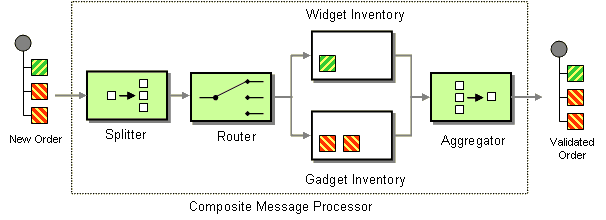This article will cover the Best Crypto Project In India by looking at some creative innovative platforms that have changed the landscape of cryptocurrency in the India.
These projects have some outstanding features such as strong security and scalable solutions which are indeed the key components of the Indian digital finance world.
So, here are some of the most remarkable crypto initiatives from the region.
Key Point & Best Crypto Project In India List
| Entity | Key Point |
|---|---|
| Trillioner Coin (TLC) | A deflationary token designed to support long-term value growth. |
| Nuchain | A decentralized blockchain focused on scalability and privacy. |
| Polygon (MATIC) | A multi-chain scaling solution for Ethereum, enhancing transaction speed and cost-efficiency. |
| CoinDCX | A leading Indian cryptocurrency exchange offering a wide range of digital assets. |
| CoinSwitch | A global crypto exchange providing users with an easy-to-use platform for buying and trading assets. |
| Sharedum (SHM) | A decentralized platform focused on enhancing the Web3 ecosystem with a decentralized identity solution. |
| Huddle01 | A decentralized video conferencing platform powered by Web3 technology. |
| On Ramp Money | A platform providing simple and efficient ways to buy cryptocurrencies. |
| AIO Wallet | A multi-currency wallet offering support for various blockchain networks. |
| Layer Zero | An interoperability protocol designed to enhance communication between blockchains. |
1.Trillioner Coin (TLC)
Trillioner Coin (TLC) and what makes it arguably the best crypto project in India. The uniqueness of TLC lies in the process of burning a fraction of every transaction which ensures a continued rise in value over time.

Moreover, the project’s focus on enhancing long-term sustainability and dedication towards building an ecosystem adds value for Indian investors who are looking to diversify their portfolios in the fast evolving world of cryptocurrency.
Pros & Cons Trillioner Coin (TLC)
Pros:
- Deflationary Model: Its users benefit from the value appreciation associated with each transaction TLC performs. This is possible due to Trillioner Coin’s strategy of burning a fraction of every transaction made within their network.
- Strong Community Support: TLC’s brand recognition is already well-established and ensures growth through community engagement and decision-making.
- Sustainability Focus: TLC is focused on sustainable growth, with a staunch clear roadmap regarding ecosystem development. This makes The Trillioner Coin Project a solid investment within the crypto space of India.
Cons:
- Market Volatility: As most cryptocurrencies, TLC is subjected to the brutal volatility of the crypto market. This could mean harsh price incidents on either side.
- Regulatory Uncertainty: Like a lot of crypto projects in India, the regulatory landscape for TLC remains vague which may affect it’s growth as well as the rate of adoption.
- Limited Adoption: While TLC is a household name within the crypto community, the real world adoption and use cases are still in infancy which may affect the potential it can reach in the short run.
2.Nuchain
Nuchain is notable for its speed, efficiency, and effective handling of information.
India’s leading blockchain is more than just a buzzword. Nuchain’s vigorous consensus system allows speedy and secure transactions.

Nuchain is considered one of the ‘best’ for its real world utilizations, its integration into existing systems, and its focus on unique innovation potentials.
Nuchain, with its commitment to customized solutions, does best satisfy the demands of the customers.
Pros & Cons Nuchain
Pros:
- Highly Scalable and Fast: Nuchain’s blockchain infrastructure is capable of supporting a multitude of transactions simultaneously, which makes it scalable and fast. This allows Nuchain to support large scale applications, for example, in India.
- Nullified Privacy Issues of Users: Nuchain integrates cutting edge privacy components to ensure the safety of transactions and data of user within the expanding ecosystem of crypto in India.
- Decentralized Application Friendly: Nuchain serves as a comprehensive platform for builders of dApps with its comprehensive tools and resources, making it easier to develop dApps and thus making Nuchain more developer friendly.
Cons:
- Still Emerging: Nuchain’s ecosystem is still small which limits its utility due to its newness when compared to other well-established blockchain projects.
- Network Effects In Integration: Nuchain faces adoption challenges in India due to being a new player in the Indian dApps market, which is extremely competitive. There are also challenges in integrations in mainstream India due to network effects.
- India-Specific Regulations: Nuchain can be impacted by the changing government regulations and laws concerning cryptocurrency as any other blockchain platform operating in India.
3.Polygon (MATIC)
It distinguishes itself by providing a solution that is scalable to Ethereum’s problems, enabling faster and cheaper transactions.

Analysts believe Polygon has emerged as the preferred blockchain development platform owing to the increasing adoption of decentralized applications (dApps) alongside its vital security features.
In addition, Polygon is popular in India because of its vast community, strong support from the investors, and the aim to connect various blockchains together.
Pros & Cons Polygon (MATIC)
Pros
- Etherum Compatibility: Polygon is a layer-2 blockchain that is designed to scale Ethereum’s infrastructure and retain its ecosystem through faster and lesser costly transactions.
- Strong Ecosystem: Polygon has established a sturdy ecosystem in India with an array of dApps and DeFi projects that are hosted on its platform.
- Industry Recognition: Polygon gained visibility through its focus on strategic partnerships on important world brands and projects increasing worlds credibility and prospects in India’s crypto market.
Cons:
- Dependence on Etherum: Polygon’s strengths would turn into weaknesses as it remains heavily reliant on Ethereum’s growth and scalability. It renders MATIC vulnerable to issues such as network constraints or Ethereum’s ineffective strategies.
- **Competition **: The growth of layer-2 competition could inhibit the market position and scalability of Polygon MATIC, showing the weakness for the long-term growth potential.
- Centralization Concerns: Polygon suffers from criticism of having issues in validator allocation and governance which raises the risk of centralization participants’ to lose their control and space.
4.CoinDCX
CoinDCX impresses as a top digital currency exchange in India because of its simple to use interface and robust security protocols.

The firm has simplified the Indian crypto ecosystem by enabling effortless access to digital currencies for both novice and expert traders.
Moreover, the company’s dedication to regulatory compliance and collaboration with global leaders has earned CoinDCX a trusted reputation in India.
Pros & Cons CoinDCX
Pros:
- Shiba Inu, Bitcoin, or even imported cars: There’s no limit! Indian users of CoinDCX can trade across the entire spectrum of newly launched assets and widely recognized tokens.
- Ease of UI: A simple-click is all it takes to streamline buying, selling, and holding of various digital currencies, making the process more accessible to novice traders.
- Robust Measures for Security: Users funds are well protected from any potential threat, by employing two-factor authentication and regularly using cold storage.
Cons:
- Not Suitable For Expert Level Users. The absence of advanced trading tools makes the platform unappealing for expert traders.
- More Fees, Less Gains: To withdraw cryptocurrency from the exchange, users have to pay extra fees which negates the benefits for high volume traders.
- Less Control: Government policies concerning Indian exchanges raise regulatory concerns for CoinDCX just like any other exchange. This puts the exchange’s operations and userbase at risk.
5.CoinSwitch
While CoinSwitch has differentiated itself through offering a straightforward, safe platform where users can buy and sell many different cryptocurrencies on cost-effective terms, it does not charge any service fees.

The company’s deep integration with a multitude of exchanges allows them to offer competitive prices. Every customer is guaranteed support and education on how to use crypto and the platform which is helpful for beginners as well as experienced traders.
Because of CoinSwitch’s effort towards inclusion, ease of use, and accessibility, they stand out as the leading crypto platform in India.
Pros & Cons CoinSwitch
Pros:
- No Charges That Are Extra: With regard to withdrawals and deposits, no fees are charged whatsoever. There are no additional fees that users will suffer from in regard to various transactions.
- Multiple Digital Currencies: An important consideration is that users from India will have access to a number of digital currencies which will allow them to trade in several different assets and base coins.
- Transactions Are Done Instantly: Transaction of CoinSwitch are simple and instant. This is particularly beneficial for users who need efficiency and speed when trading crypto.
Cons:
- Basic Trade Features Only: Advanced features like margin trading and futures are not supported by the platform which can be restricting for users who are more seasoned traders.
- Service Without A Wallet: Users on CoinSwitch do not have access to an integrated wallet which means that users will have to depend on third party wallets to store their crypto assets which reduces ease of use.
- Fees Indirectly But Still Exist: Elevated fees are put forth by the platform however, they do provide the best rates. Most frequent traders or people making larger transactions will have a problem.
6.Sharedum (SHM)
Sharedum is remarkable for its novel approach for managing identity on a decentralized basis, as it provides security and scalability to both individuals and businesses.

The company utilizes blockchain technology to guarantee privacy and integrity of data while enabling seamless communication across multiple systems.
The ability to Put the user in control over his digital identity is a remarkable focus that innovation of Sharedum makes it an important project within the India\’s thesis of crypto currency.
Pros & Cons Sharedum (SHM)
Pros:
- Decentralized Identity Management: Sharedum provides an advanced approach for users to manage their digital identity securely and privately without having to depend on a more centralized organization which controls their personal information.
- Scalability: With limited infrastructure that is intended for greater scalability, Sharedum can handle higher transaction volumes which makes it exceedinglyfit for day to day uses in India.
- Privacy-Focused: Users’ data is guarded with the platform’s strict approach regarding privacy which is a sigh of relief for ever-growing issues relating to security and data breach illness.
Cons:
- Niche Use Case: As a decentralized idenity management system, Sharedum contains a wide range of appeal in the specific industries which may result in a stagnated growth across other categories.
- Lack of Mainstream Adoption: Sharedum still being underutilized and in the process of acclimation stands to inherit limited utilization and network effects in the nation for India.
- Regulatory Challenges: Sharedum is bound to encounter regulatory scrutiny in India particularly regarding the evolving data protection laws and crypto laws because it is handling sensitive personal information.
7.Huddle01
Huddle01 and the reason it is thought to be the top crypto project in India Huddle01 has solved an issue concerning the video conferencing industry by incorporating Web3 and blockchain, providing secure and private communications within a decentralized environment.

Offering the capacity for users to participate and host meetings without dependence on centralized servers is a great benefit in regard to privacy.
Empowering users and businesses through a decentralized transparent platform is what makes Huddle01 an exceptional crypto project in India.
Pros & Cons Huddle01
Pros:
- Decentralized Video Conferencing: Because of advanced blockchain technology, Huddle01 is enabled to ensure that sensitive videoconferences are conducted in a safe, private environment with their one-of-a-kind decentralized video conferencing platform. This feature in itself serves a major advantage in the modern world.
- Web3 Integration: Huddle01’s incorporation of blockchain and Web3 technology serves additional purposes. For one, it provides safe and transparent business solutions to be employed on India’s growing crypto ecosystem.
- Enhanced User Control: Users are provided with complete administrative privileges over their data and meetings which does away with any worries surrounding centralized power control. This feature makes Huddle01 highly beneficial for the crypto community.
Cons:
- Barrier To Adoption: Web3 at its very heart is a new principle, and its applications are still strange to many people. Because of that, Huddle01 might not see MAU figures that it hopes to achieve.
- Complexity Of Technology: This principle of decentralization is at odds with traditional centralized systems. While claiming the platform as user friendly, some people might find it completely foreign and confusing. They expect an ease of access that is simple to understand without so many complex elements.
- Limited Integrations: Overtime Huddle01 will integrate better and more applications to strengthen its adaptability with traditional business systems. For the moment though, products such as Zoom and Microsoft Team are favoured against Huddle01 due to their free integrations with so many additional business tools.
8.On Ramp Money

On Ramp Money captures the attention of many Indian users for its simple approach to buying cryptocurrency, which is supported by efficient banking integration and minimal transaction costs.
It has also positioned itself as an educator, providing specialized support and guidance to users which makes it an ideal for newcomers and experienced traders and serves the purpose of crypto expansion in India.
Pros & Cons On Ramp Money
Pros:
- Easy Onboarding Of New Users: The platform On Ramp Money allows the hassle-free conversion of the Indian Rupee into cryptocurrency. This means that a user can access the world of cryptocurrency in an uncomplicated way.
- Direct Connections to Indian Banks: Users’ accounts are funded by Indian banks without the hassle of third-party mediating institutions. This enables fast and reliable deposits and withdrawals.
- Guidance for New Users: The platform is supportive in ensuring that new traders grasp the concepts of trading as well as the underlying technology of blockchain to ensure that it appeals to the wider population of India.
Cons:
- Easy Onboarding Of New Users: The platform On Ramp Money allows the hassle-free conversion of the Indian Rupee into cryptocurrency. This means that a user can access the world of cryptocurrency in an uncomplicated way.
- Direct Connections to Indian Banks: Users’ accounts are funded by Indian banks without the hassle of third-party mediating institutions. This enables fast and reliable deposits and withdrawals.
- Guidance for New Users: The platform is supportive in ensuring that new traders grasp the concepts of trading as well as the underlying technology of blockchain to ensure that it appeals to the wider population of India.
9.AIO Wallet
AIO Wallet is set apart by its multi-currency supported platform which enables the trade of numerous cryptocurrencies across various blockchains.

It’s incredibly easy to use, and security measures such as two-factor authentication ensure that Indian users have a clean experience.
Its popularity stems from its extensive cross-chain features and its willingness to adopt new technologies. This makes the wallet perfect for novices and experts in crypto in India.
Pros & Cons AIO Wallet
Pros:
- Support for Many Currencies: AIO Wallet caters to a multitude of cryptocurrencies and tokens. This gives the users flexibility while enabling them to cover a range of assets using a single wallet which is more secure; which is especially handy for Indian crypto enthusiast.
- Supports Transactions on Different Blockchains: The wallet works with various blocks making transactions on different systems easy. This feature increases the wallet’s functionality in different crypto possibilities.
- User-Friendly Design: AIO Wallet is built with ease of use as the main focus, allowing casual users and advanced crypto traders who want to as little hassle as possible to use easy-to-use systems.
Cons:
- Absence of Each Advanced Feature: AIO Wallet covers the basic needs of its users, however, a gains more complexity with advanced trading tools and features which is crucial for experienced traders.
- Account Security Risks for Non-Custodial Wallets: Non-custodial wallets put the private key into the hands of users. This greatly increases the risk of losing funds.
- High Traffic: Network Slows Down: AIO Wallet can face delays when there are spikes in supported blockchains due to high transaction volume, causing issues with prompt transfers and other transactions.
10.Layer Zero
As an interoperability protocol, Layer Zero stands out by linking different blockchains to facilitate better communication across various platforms.

It enables dApps to function over various networks which resolves critical scaling and data sharing problems.
From its pioneering approach to its obsession with bridging blockchain ecosystems, Layer Zero is a revolutionary novel in the context of India’s evolving crypto market, achieving unparalleled ease of access for developers and users in the country.
Pros & Cons Layer Zero
Pros:
- Interoperability: Hardly any communication issues arise with the usage of Layer Zero thus permitting users to shift financial resources and information from one platform to another effortlessly, which is important for the advancement of decentralized finance in India.
- Scalability: Layer Zero enables adoption of cross-chain operations with ease, which allows for the optimization of services to accommodate an increase in transaction counts, thereby confirming that the infrastructure can accommodate the development of blockchains in India.
- Low Latency: Focusing on mitigating transaction delays allows for quicker cross-chain transactions and enhances the overall user experience by ensuring they are served appropriately in real-time.
Cons:
- Complexity for Developers: Its cross-chain capabilities are highly potent but may prove to be daunting for developers unacquainted with its structure, thus inhibiting more widespread use of it.
- Dependence on Partner Blockchains: Three or more blockchains are required to form a functioning solution which makes Layer Zero dependent solely on the connected chains, making the entire system prone to the problems arising in partner networks.
- New Technology Risks: As a lesser known project in crypto, any expansion and integration fire changing blockchains might open up a plethora of unforeseen technical problems or security breaches for Layer Zero.
Conclusion
India’s cryptocurrency ecosystem is shifting as notable projects as Trillioner Coin, Polygon, CoinDCX, and others are coming up quickly.
All of them have their strengths as some focus on more sophisticated blockchain and DeFi, some on day-to-day usability, and others on providing safety and protective features.
There are some issues like regulatory challenges and rivalry, but the leading Indian crypto projects are establishing themselves to serve novices as well as seasoned investors, so cryptocurrency becomes easy and trusted for the people of the country.









